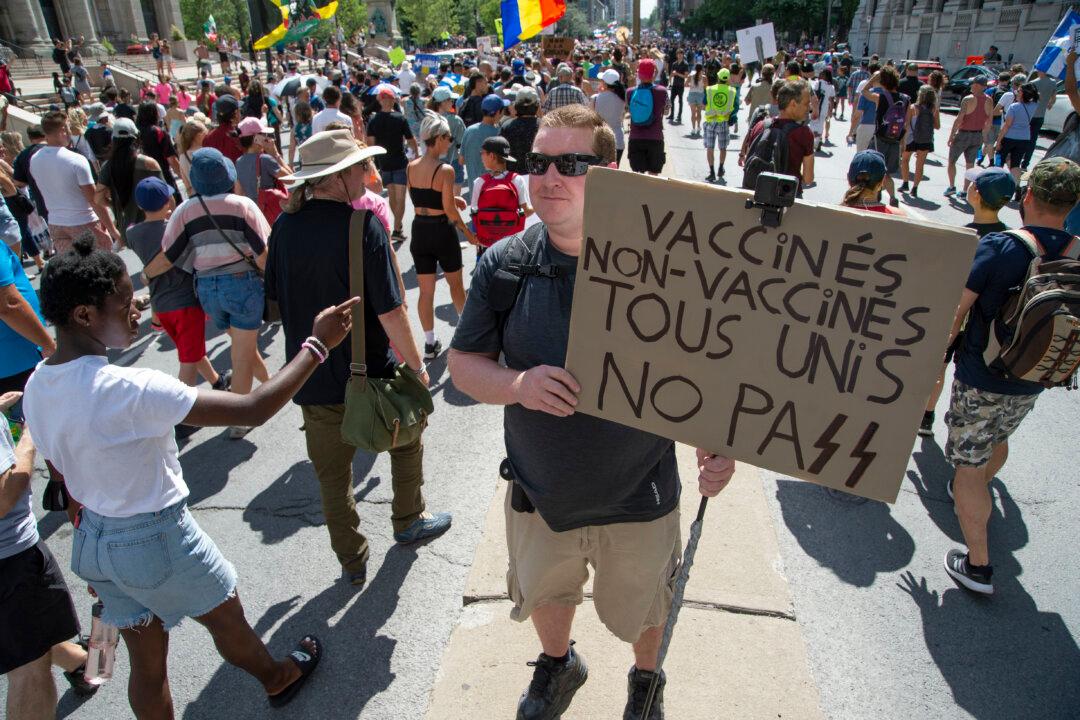With Quebec’s mandatory vaccination passport set to come into effect in less than two weeks, owners of businesses such as gyms, bars, and restaurants in the province are bracing themselves for the potential impact on their operations.
Provincial Health Minister Christian Dubé announced on Aug. 10 that starting Sept. 1, Quebecers will be asked to show the official document as proof they have received both doses of the COVID-19 vaccine when accessing non-essential services or businesses.





